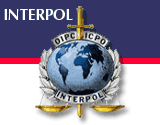
NEWARK, New Jersey, Suara Indonesia News - A U.S. citizen arrested following a global public appeal by INTERPOL to identify a suspected paedophile featured in a series of abusive images involving young boys has been jailed for nearly 20 years.
Wayne Nelson Corliss, aged 60, was also sentenced to a lifetime supervised release following his prison term, in addition to being required to register as a sex offender after pleading guilty to five charges including the production and possession of images depicting child sexual abuse and travelling to foreign countries to engage in illegal sexual activities.
Corliss was taken into custody by US Immigration and Enforcement (ICE) agents at his apartment in Union City, New Jersey in the early hours of 8 May 2008, just 48 hours after INTERPOL launched its public plea to identify the previously unknown man.
Close and swift co-operation and co-ordination between the INTERPOL General Secretariat headquarters in Lyon, France, the INTERPOL National Central Bureau in Washington DC, ICE, the US Attorney’s Office for the District of New Jersey and the Criminal Division’s Child Exploitation and Obscenity Section (CEOS) made Corliss’s identification, location and arrest possible, after tips were received from members of the public. The case was launched following strong investigative work by Norway’s police and prosecutors.
Welcoming the court’s decision, INTERPOL Secretary General Ronald K. Noble said the sentence and the law enforcement co-operation which led to the arrest should serve as a deterrent to all paedophiles anywhere in the world.
“What is also clear from our appeal is that members of the public are ready and willing to help police identify and arrest child sexual predators who would otherwise continue to use the Internet to maintain their anonymity and to travel to prey on young victims,” said Mr Noble.
“The days when child sex predators could travel internationally to violate innocent children without fear of being identified, prosecuted and convicted are over.
“I would like to praise all of the law enforcement agencies involved in the arrest, prosecution and sentencing of Corliss, in what is clearly a very significant example of the benefits of international co-operation.
In his guilty plea at the New Jersey court on 28 October 2008, Corliss admitted he travelled to Thailand each year from 2000 to 2002 and in each instance he travelled with the intent to sexually abuse children; paid for unfettered access to children; brought items to facilitate their sexual abuse and actually sexually abused children.
Corliss also admitted to sexually abusing children in 2002 in Thailand for the purpose of photographing and videotaping the activity and to storing and possessing child sexual abuse images on his home computers at the time of his arrest in 2008.
Earlier this month, two other Americans, Burgess Lee Burgess, aged 45 and Mitchell Kent Jackson, aged 32 were each jailed for six years and five months after they admitted to visiting Thailand between 2000 and 2002 to pay to have sex with young boys. Both had also admitted in their pleas that in preparation for their travel to Thailand, they had corresponded with Wayne Nelson Corliss.
























